Weight Loss And Skin Care: How To Avoid Loose Skin During Weight Loss
Tips to lose fat and gain muscle in the right places to keep your skin firm and tight.

Image: Shutterstock
When you try to lose weight, you will notice that the entire process affects your skin in many ways. Don’t worry. We can help you with the right tips for skin care during weight loss. It is not an easy task to lose weight. But you have finally discovered a workout and diet plan that works for you. And, you have started to lose the weight you have been carrying for years.
Only one problem: your new, smaller body is covered by the same surface area, causing your skin to droop or lag. Your skin cannot keep up with weight loss. It will expand to fit your body and then compress to match it because it is elastic, but not if you lose weight too quickly. So, how to avoid loose skin when losing weight? Thankfully, there are ways to prevent sagging skin throughout your weight-loss journey. Keep reading to know more!
In This Article
Why Do You Get Loose Skin After Weight Loss?

Your skin is made up of proteins like elastini One of the main proteins produced by the body that consist of elastic fibers that provide elasticity, stretch, and recoil to the skin. and collageni A protein found in the body that gives structural support to the skin, connective tissues, cartilage, and bones. . These two make up about 80% of your skin structure and help in keeping it firm and tight. When you gain weight, your skin expands to create enough space for the additional growth (just as it happens during pregnancy).
In case of pregnancy, after the child is delivered, the skin retracts naturally. However, obese people tend to carry the weight for years. The skin remains stretched for long, damaging the elastin and collagen, and does not retract easily after they have lost weight (1). And that’s the reason you get loose skin and stretch marks after weight loss.
Several risk factors influence the loss of collagen and elastin in your skin.
Key Takeaways
- When you gain weight, your skin is stretched, which affects its elastin and collagen. Once you lose weight, the damaged collagen and elastin lead to loose skin.
- Factors like age, smoking, or sun exposure can affect the loss of skin elasticity.
- Eat a well-balanced diet, rich in protein. Drink enough water every day to improve skin hydration and boost its firmness.
Factors Affecting The Loss Of Skin Elasticity
Loss of skin elasticity can make your skin look saggy, leathery, or even crinkled. To prevent this, you need to know what causes skin elasticity. Here are some factors you should know about:
- Time Period: If you have been obese or overweight for a long time, your skin will sag after you have lost the fat because of damaged collagen and elastin.
- Amount Of Weight You Have Lost: If you have lost just a few kilos (say 5-7 kgs), it will not affect your skin. However, if your weight loss is massive (say 45 kgs), a significant amount of skin will loosen up.
- Age: This is a crucial factor. Older skin has low levels of collagen and hence tends to loosen after weight loss (2).
- Excessive Sun Exposure: Long time exposure to the sun hampers the elastin and collagen production in your body (3), (4). This may result in loose skin.
- Smoking: This also hampers collagen production, resulting in sagging skin (5).
- Nutrition: Your diet plays a significant role in maintaining skin elasticity, especially during weight loss. Consuming foods rich in antioxidants, vitamins, and minerals may help support collagen production and protect the skin from oxidative damage. Staying hydrated may also enhance skin elasticity.
But how do you keep your skin tight while losing weight? The good news is, there are ways you avoid excess loose skin during weight loss. Read on to know what they are.
Tips To Lose Weight Without Getting Loose Skin
- Do Not Hurry, Go Slow
- Focus On Building Muscle
- Follow A Balanced Diet
- Kick The Butt
- Water, Water, And More Water
- Take Supplements To Fill Any Gaps
- Try Skin Brushing
- Use A Good Sunscreen Whenever You Go Out
- Try Using Skin Firming Creams
- Consider Body Contouring Surgery
- Radiofrequency (RF) Therapy
- Laser Resurfacing
- Ultrasound Skin Tightening
1. Do Not Hurry, Go Slow
In the race to weight loss, be the tortoise. When you are losing weight, it is important to take care that you do not end up losing more muscle mass and water (caused by glycogen depletion). Muscles help in holding up the skin. So, try to focus on losing fat and not muscle. Also, you tend to gain weight faster once the glycogen is restored. So, focus more on losing fat and not just muscle and water. The National Institutes of Health (NIH) recommends losing between 1-2 pounds per week for the first six months (6). And afterward, it should be gradual.
2. Focus On Building Muscle

Once you start losing weight, focus on building muscle mass to replace the fat you are losing. The tight and toned muscle under your skin is the foundation on which your skin will rest. So, while you work on shedding that flab from your body, try to build strength as well. This not only keeps your skin from sagging but also increases your rate of calorie burning, even when you are done exercising for the day. This furthers your weight loss goals. Talk with your trainer. He or she might suggest using machines, dumbbells, and bodyweight along with resistance training and high-intensity training for improving your metabolismi A chemical process in the body responsible for converting food and drinks into energy, essential for living. and building muscle mass. For best results, follow a protein-rich diet along with your training (discussed in detail right below).
3. Follow A Balanced Diet
I know you have heard this a lot of times, but exercising is of no use if your body is not getting the required nutrients to stay healthy. Protein is essential for maintaining the elasticity of your skin, and collagen is the most important protein that you need to keep your skin from sagging. Your skin will not remain taut unless you follow a protein-rich diet. A high-protein diet also reduces your cravings. All your meals should be balanced and include a protein source, a fat source, and some veggies that are low in carbs. When it comes to protein, meat (chicken, beef, lamb), fish and seafood (trout, salmon, shrimp), and eggs (including the yolk!) are your best friends. For low-carb veggies, add spinach, broccoli, cabbage, kale, cucumber, lettuce, and cauliflower to your plate. Use oils such as coconut and olive oils, butter, and avocado to your diet. These are also excellent sources of antioxidants that will keep your skin in excellent condition.
 Did You Know?
Did You Know?4. Kick The Butt
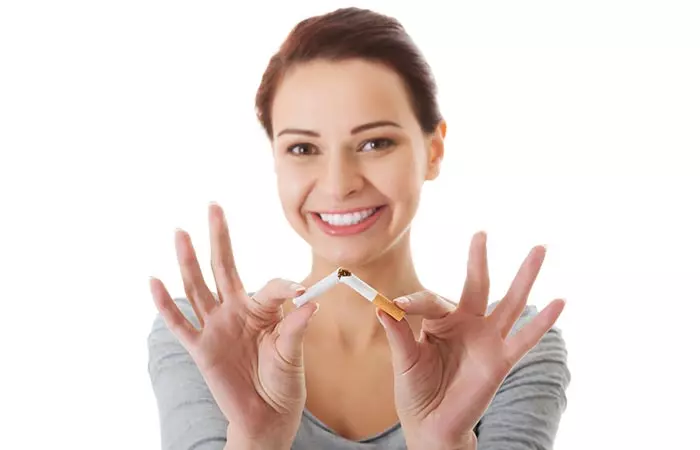
This is important. Because the more you light up a cigarette, the less resilient your skin becomes. Smoking severely affects your collagen levels; even second-hand smoking does severe damage to your health. It not only triggers inflammatory reactions and oxidative damage but also causes premature aging of your skin by reducing the collagen levels. And this has been proven by research (7). Following a healthy lifestyle is important to maintain the health of your body. A few other ways to prevent oxidative damage is getting enough sleep and practicing stress management.
5. Water, Water, And More Water
Here is another reason to drink more water. Other than its contribution to weight loss and your energy levels, your skin’s elasticity and its appearance depend a lot on your hydration levels. A study found that increasing water intake can significantly improve the moisturization levels of your skin and its overall functions (8).
6. Take Supplements To Fill Any Gaps
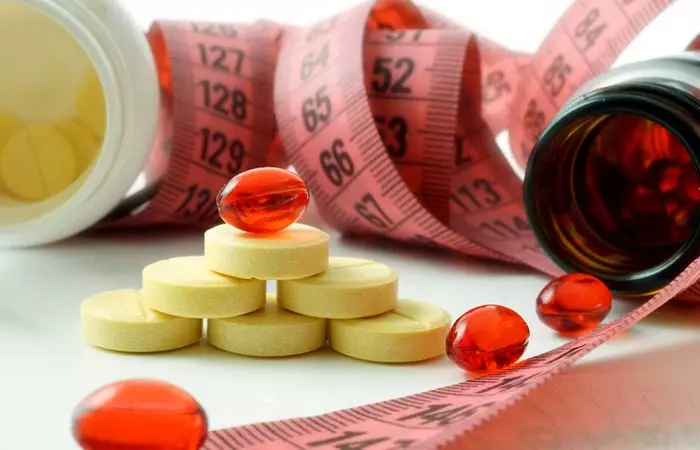
Your diet should strike the perfect balance between essential minerals, vitamins, and nutrients to promote weight loss and maintain your overall health. However, it is often not possible to get all the nutrients your body needs through your diet. To bridge that gap, you have to take additional supplements. Now, the question is, what supplements can you consider? You can take a gelatin supplement as a study showed that it helped in improving the elasticity of the skin (9). Fish oil is also said to improve skin elasticity in women (10). So, if you do not consume fish, you can take fish oil supplements. You can even take collagen supplements. Remember to talk to your nutritionist and doctor before taking any additional supplements.
7. Try Skin Brushing
This is a kind of exercise for your skin. You can use a brush with natural bristles and a long handle to brush your skin. This exfoliation technique improves circulation and eliminates all the toxins and wastes that are responsible for the extra cellulite in your body. Ideally, skin brushing should be done 5-10 minutes every morning while you are undergoing weight loss. In fact, you should continue doing this even after you have lost weight as it keeps your skin firm and taut.
Dr. Nina Ellis Hervey, a YouTube blogger, explained how she avoided having loose skin after losing 100 pounds. In her vlog, she says, “In addition to having a healthy diet, I tried dry brushing and wet brushing, and also I have used different kinds of brushes and loofahs that help with skin rejuvenation and reformation (i).”
8. Use A Good Sunscreen Whenever You Go Out
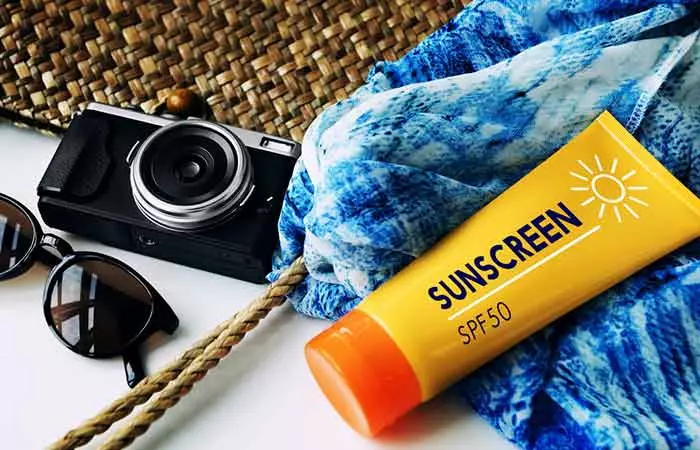
You might wonder what this has to do with tightening loose skin. The sun rays can cause the breakdown of collagen, which makes your skin lose its elasticity faster. So, in case you want to run every day, plan it during morning or evening as the sun is less scorching during these times. Also, slather sunscreen lotion on the exposed parts. Make sure that you are buying a cream with a broad spectrum.
9. Try Using Skin Firming Creams
Most of the skin firming creams contain elastin and collagen. They often lift your skin and tighten it. This is because your skin can readily absorb collagen and elastin. Thus, these creams improve the firmness of skin, making it look tight and supple.
10. Consider Body Contouring Surgery
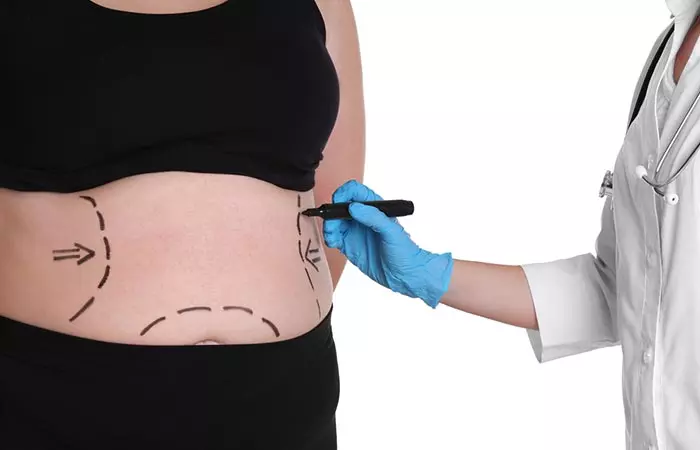
This is only for those who have lost a tremendous amount of weight via any weight loss methods or surgery. Such patients often undergo body contouring surgery to remove the excess skin. During this surgery, the doctor will make an incision in your body and remove the excess fat and skin. The incision is sutured for minimizing scarring. Popular body contouring surgeries include tummy tucking or abdominoplasty and arm lift or brachioplasty.
These are some effective tips that help in skin tightening. However, there are some other alternate medical procedures you may want to check out. Scroll down to know more.
Alternative Medical Procedures
11. Radiofrequency (RF) Therapy
RF therapy uses radiofrequency energy or low-energy radiation to heat the deeper layers of the skin (dermis), stimulating collagen production and improving aging signs like wrinkles and sagging skin. This technique is safe and commonly used for skin tightening and rejuvenation (11).
12. Laser Resurfacing
This procedure uses lasers to remove the outer layer of the skin, which constricts the collagen and makes the skin appear tight and smooth. While needing 5 to 7 days of downtime, this method offers the fastest results, and you may notice tightening within two weeks (12).
13. Ultrasound Skin Tightening
This treatment uses focused ultrasound energy, which heats the skin layers for up to 5 mm in target areas. This stimulates collagen production and helps lift and tighten loose skin, making it appear firm (13).
 Quick Tip
Quick TipInfographic: 5 Tips To Lose Weight Without Getting Loose Skin
Losing weight quickly results in your skin sagging and becoming loose. Although it is a natural process, you can keep your skin tight by incorporating simple tricks into your lifestyle. We have rounded up 5 tips to help you lose without getting loose skin in the infographic below. Check it out to learn how to prevent loose skin during weight loss.

Illustration: StyleCraze Design Team
Overexposure to the sun, age, and overstretched skin due to being overweight can damage the skin’s elasticity, which results in your skin sagging after significant weight loss. Gradually losing weight, building muscle, eating a balanced diet, and drinking plenty of water are some tips you must incorporate into your skincare during the weight loss journey. If you have lost a lot of weight and your skin is still sagging after following the above tips, you can opt for body contouring surgery. Consult a doctor for more information.
Frequently Asked Questions
Does skin glow after weight loss?
Consuming healthy food, taking all the necessary nutrients, drinking enough water, and exercising for weight loss may help improve the skin as well. Following these practices may help tighten your skin after weight loss, making you appear more toned.
Does the face change after weight loss?
Yes, your face can show changes after weight loss. In some cases, losing weight may make the skin sag and cause wrinkles. That is why it is essential to follow a proper skin care regimen while trying to lose weight.
Does weight loss cause dull skin?
Weight loss may cause dull skin if you have been severely controlling calories. However, healthy weight loss practices will not make your skin dull.
Will dark skin go away after weight loss?
Dark skin may not go away after weight loss. However, in the case of obese people, the dark patches on the body may become lighter after weight loss.
Learn how to prevent sagging skin after weight loss from an expert doctor. Discover the best tips and tricks to keep your skin looking youthful and healthy in the video below.
Personal Experience: Source
StyleCraze's articles are interwoven with authentic personal narratives that provide depth and resonance to our content. Below are the sources of the personal accounts referenced in this article.
i. Why I Don’t Have LOOSE SKIN After 100 Pound Weight Loss WITHOUT Surgery | TMI Skincare & Nutrition; https://www.youtube.com/watch?v=T4G_SlkVWSo
References
Articles on StyleCraze are backed by verified information from peer-reviewed and academic research papers, reputed organizations, research institutions, and medical associations to ensure accuracy and relevance. Read our editorial policy to learn more.
- Cocoa Flavanol Supplementation Influences Skin Conditions of Photo-Aged Women: A 24-Week Double-Blind Randomized Controlled Trial
https://pubmed.ncbi.nlm.nih.gov/26581682/ - Role of Age-Associated Alterations of the Dermal Extracellular Matrix Microenvironment in Human Skin Aging: A Mini-Review
https://pubmed.ncbi.nlm.nih.gov/25660807/ - Regulation of type I procollagen and MMP-1 expression after single or repeated exposure to infrared radiation in human skin
https://pubmed.ncbi.nlm.nih.gov/17067654/ - Influence of sun exposure on the cutaneous collagen/elastin fibers and carotenoids: negative effects can be reduced by application of sunscreen
https://pubmed.ncbi.nlm.nih.gov/24639418/ - Molecular basis of tobacco smoke-induced premature skin aging
https://pubmed.ncbi.nlm.nih.gov/19675554/ - Aim For A Healthy Weight
https://www.nhlbi.nih.gov/health/educational/lose_wt/recommen.htm - Secondhand smoke exposure-induced nucleocytoplasmic shuttling of HMGB1 in a rat premature skin aging model
https://pubmed.ncbi.nlm.nih.gov/25446104/ - Dietary water affects human skin hydration and biomechanics
https://www.ncbi.nlm.nih.gov/pmc/articles/PMC4529263/ - A Randomized Placebo-Controlled Pilot Trial to Assess the Effects of 5 Different Food Supplements on Skin
https://www.nuskin.com/content/dam/global/library/pdf/products/tegreen_study_01.pdf - Supplementation with Eskimo Skin Care improves skin elasticity in women. A pilot study
https://pubmed.ncbi.nlm.nih.gov/19160533/ - The Use of Radiofrequency in Aesthetic Surgery
https://www.ncbi.nlm.nih.gov/pmc/articles/PMC7489578/ - Current Laser Resurfacing Technologies: A Review that Delves Beneath the Surface
https://www.ncbi.nlm.nih.gov/pmc/articles/PMC3580982/ - Ultrasound skin tightening
https://pubmed.ncbi.nlm.nih.gov/24267423/
- Cocoa Flavanol Supplementation Influences Skin Conditions of Photo-Aged Women: A 24-Week Double-Blind Randomized Controlled Trial
- Cocoa Flavanol Supplementation Influences Skin Conditions of Photo-Aged Women: A 24-Week Double-Blind Randomized Controlled Trial
https://pubmed.ncbi.nlm.nih.gov/26581682/ - Role of Age-Associated Alterations of the Dermal Extracellular Matrix Microenvironment in Human Skin Aging: A Mini-Review
https://pubmed.ncbi.nlm.nih.gov/25660807/ - Regulation of type I procollagen and MMP-1 expression after single or repeated exposure to infrared radiation in human skin
https://pubmed.ncbi.nlm.nih.gov/17067654/ - Influence of sun exposure on the cutaneous collagen/elastin fibers and carotenoids: negative effects can be reduced by application of sunscreen
https://pubmed.ncbi.nlm.nih.gov/24639418/ - Molecular basis of tobacco smoke-induced premature skin aging
https://pubmed.ncbi.nlm.nih.gov/19675554/ - Aim For A Healthy Weight
https://www.nhlbi.nih.gov/health/educational/lose_wt/recommen.htm - Secondhand smoke exposure-induced nucleocytoplasmic shuttling of HMGB1 in a rat premature skin aging model
https://pubmed.ncbi.nlm.nih.gov/25446104/ - Dietary water affects human skin hydration and biomechanics
https://www.ncbi.nlm.nih.gov/pmc/articles/PMC4529263/ - A Randomized Placebo-Controlled Pilot Trial to Assess the Effects of 5 Different Food Supplements on Skin
https://www.nuskin.com/content/dam/global/library/pdf/products/tegreen_study_01.pdf - Supplementation with Eskimo Skin Care improves skin elasticity in women. A pilot study
https://pubmed.ncbi.nlm.nih.gov/19160533/ - The Use of Radiofrequency in Aesthetic Surgery
https://www.ncbi.nlm.nih.gov/pmc/articles/PMC7489578/ - Current Laser Resurfacing Technologies: A Review that Delves Beneath the Surface
https://www.ncbi.nlm.nih.gov/pmc/articles/PMC3580982/ - Ultrasound skin tightening
https://pubmed.ncbi.nlm.nih.gov/24267423/
Read full bio of Patrick
Read full bio of Ramona Sinha
Read full bio of Anjali Sayee
Read full bio of Shiboli Chakraborti






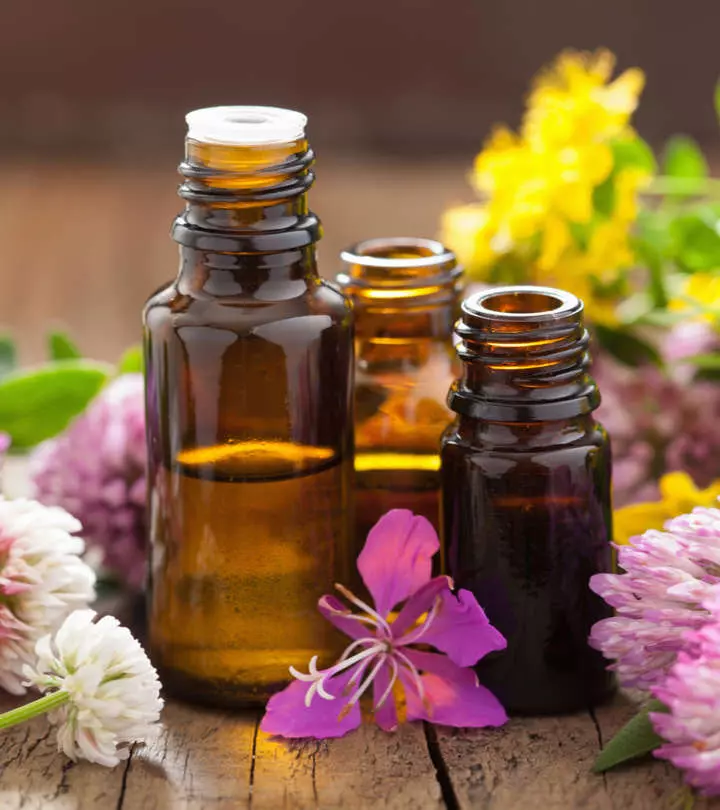


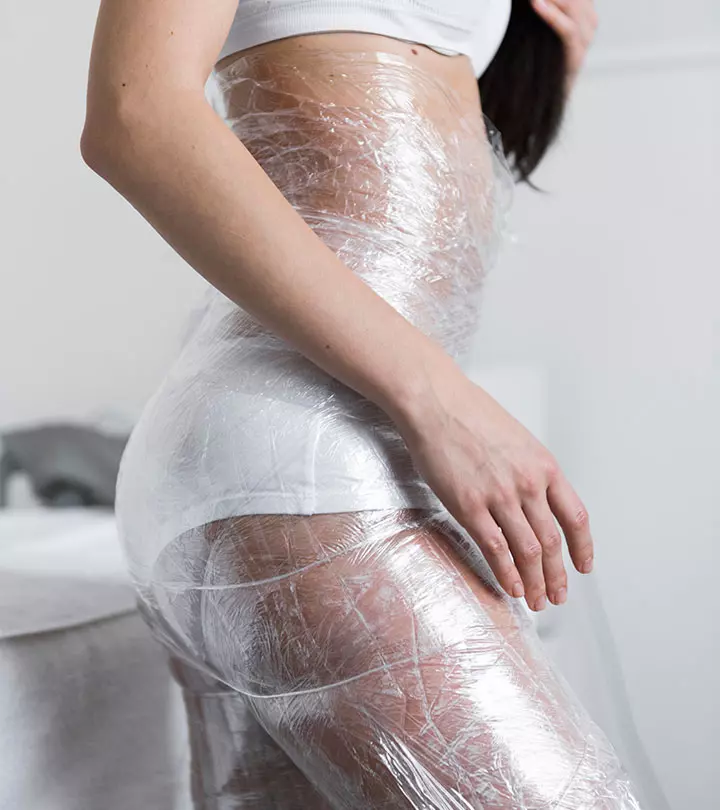


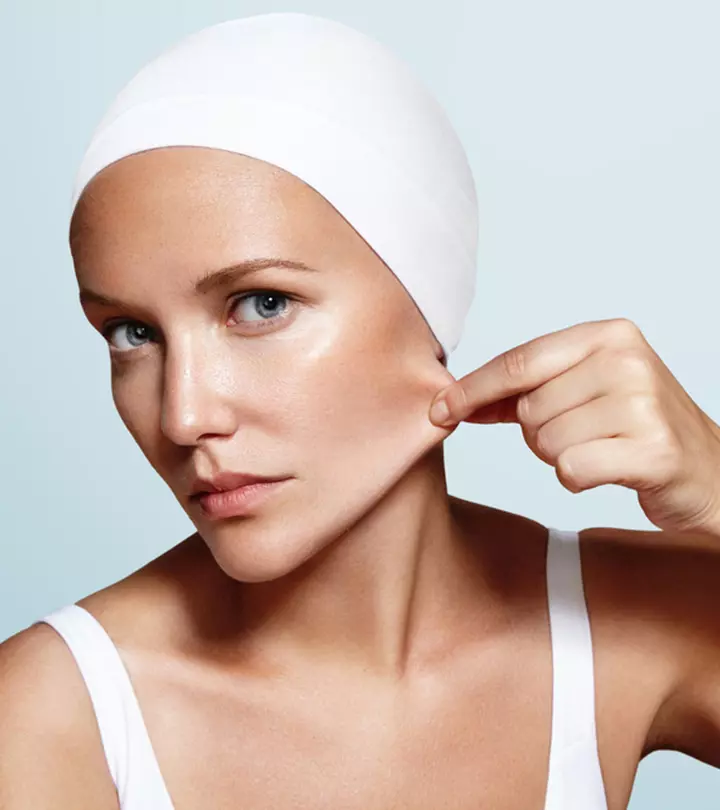
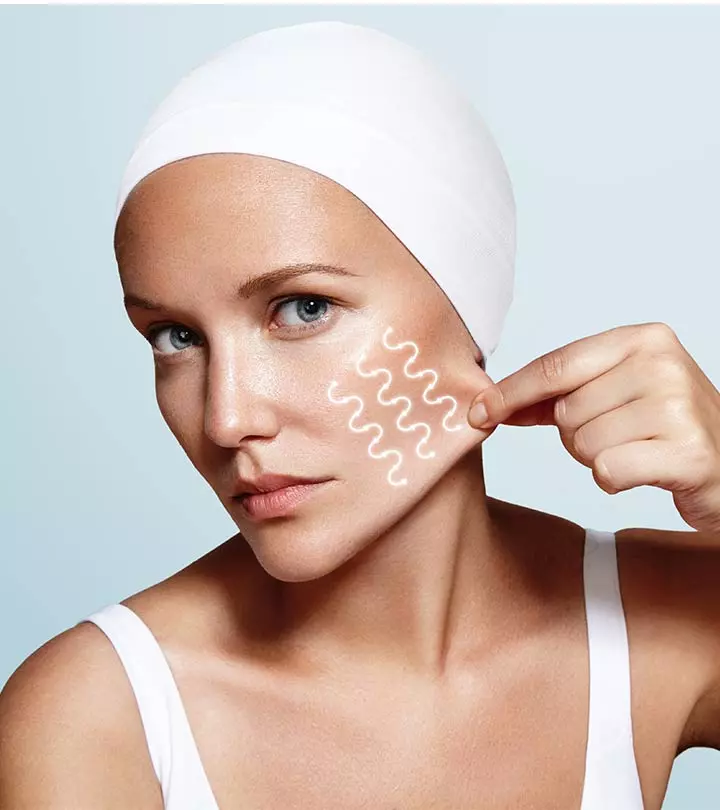
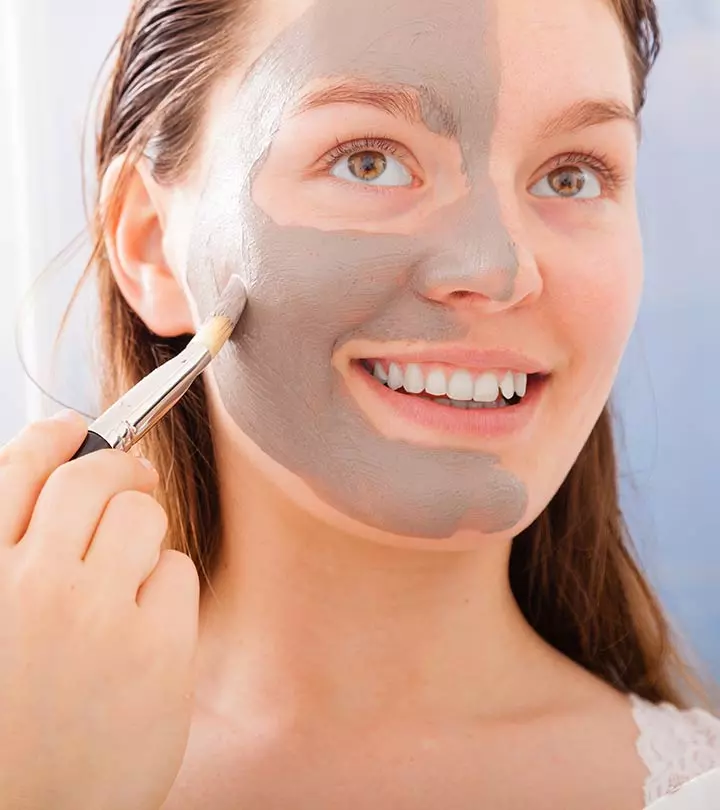

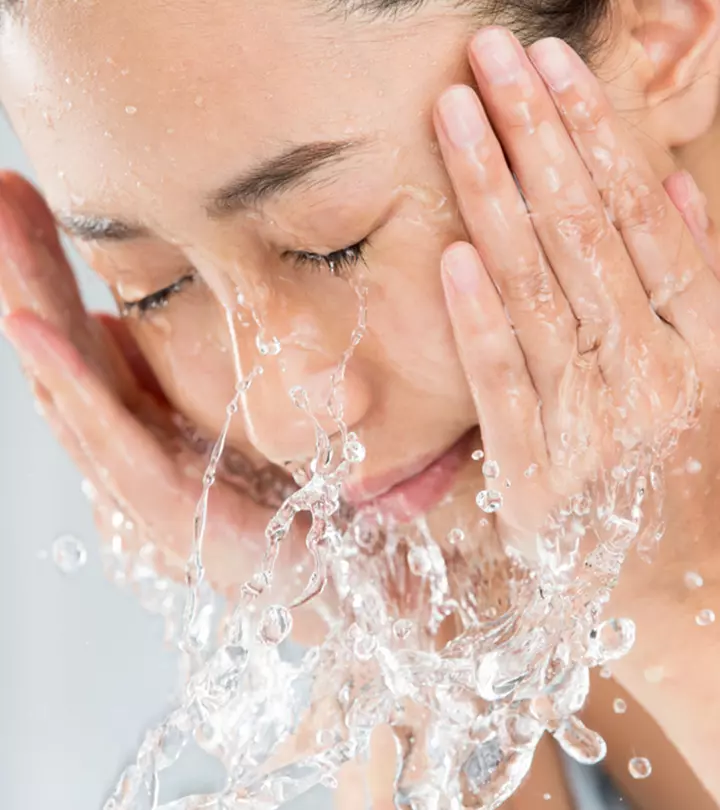


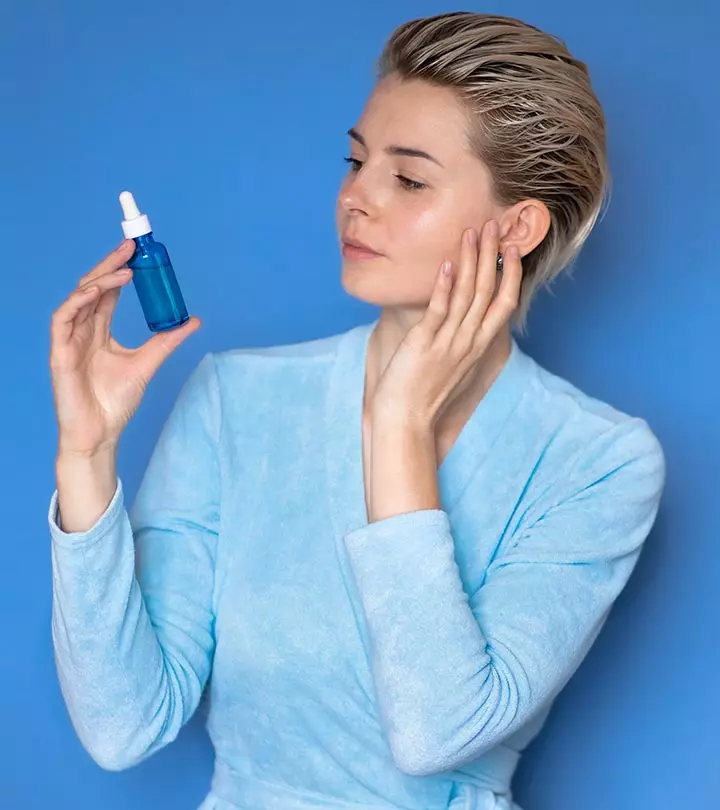

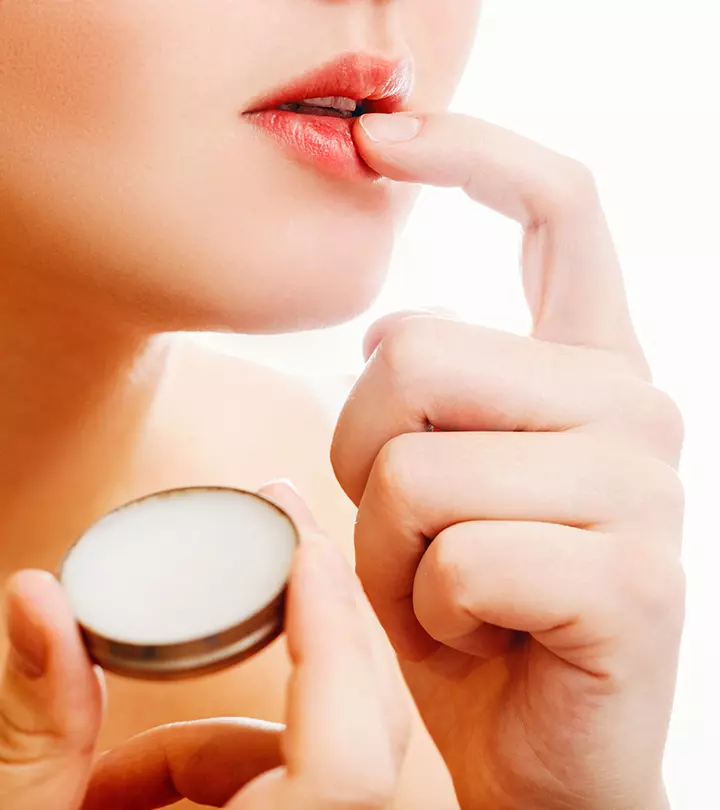

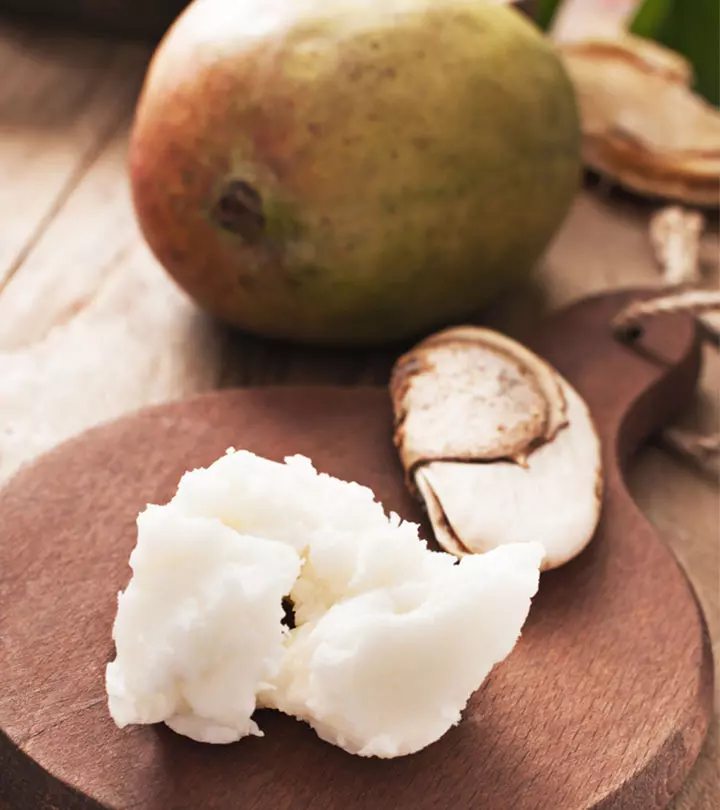
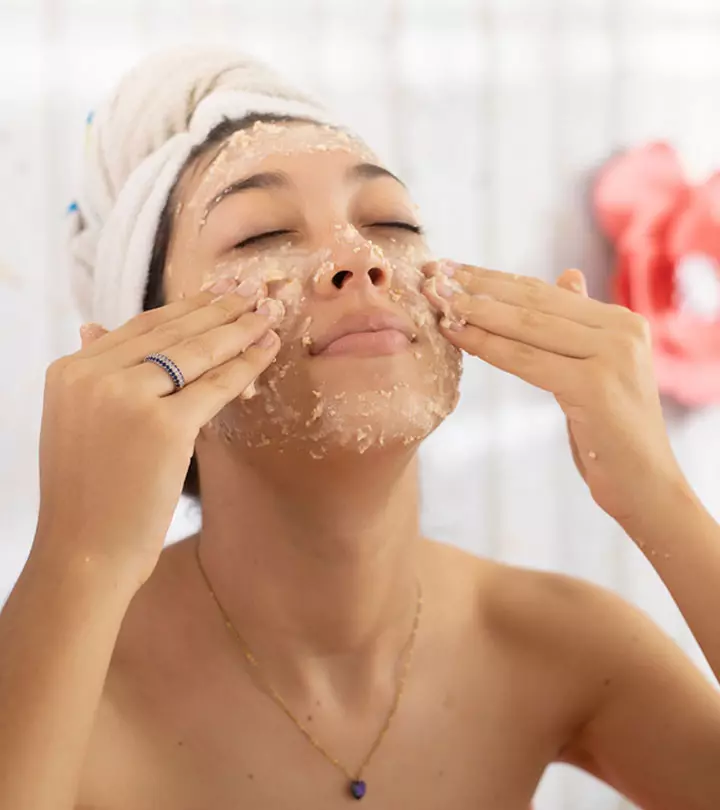


Community Experiences
Join the conversation and become a part of our empowering community! Share your stories, experiences, and insights to connect with other beauty, lifestyle, and health enthusiasts.